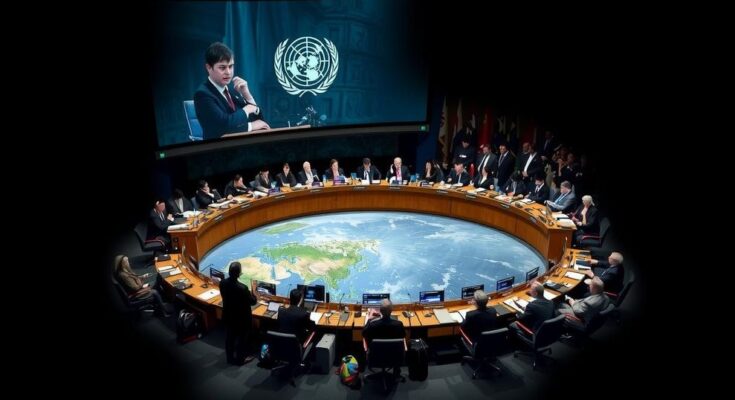Negotiators at COP29 in Baku, Azerbaijan, are under pressure to secure a financial agreement to assist vulnerable nations in adapting to climate change, with demands reaching $1.3 trillion. Wealthy nations have yet to commit to adequate financial support, raising concerns about equity and accountability in addressing climate impacts. Activists urge leaders to act decisively to fulfill commitments and provide necessary funds, particularly in the form of grants, as negotiations intensify.
As negotiators at the COP29 U.N. Climate Summit in Baku, Azerbaijan, face a looming deadline, discussions are intensifying around securing financial assistance for vulnerable nations affected by climate change. Key demands include the urgent requirement of $1.3 trillion for adaptation and recovery. COP29 President Mukhtar Babayev urged delegates to prioritize substantive negotiations. The stakes are high as global leaders recognize their roles in addressing the financial gaps to support developing countries’ climate strategies. With diverging views on financial contributions, negotiators are grappling with how to balance the needs of developing nations against the willingness of wealthier countries to provide adequate support. Pressures mount as activists demand accountability, urging leaders to move beyond commitments into action to address the immediate impacts of climate change. Recent remarks from the United Nations Secretary-General and Brazilian President Lula highlight the urgency for developed nations to strengthen their commitments in light of their significant role in greenhouse gas emissions.
The annual U.N. Climate Summit, known as COP29, is a crucial platform where negotiations are held between nearly 200 countries to address climate change challenges. A central focus this year is on securing concrete financial commitments from wealthier nations to aid vulnerable countries in adapting to climate impacts and transitioning to sustainable energy sources. Past agreements, such as the $100 billion annual goal established in 2009, have not been met with the necessary urgency or funding, creating disparities in climate finance. Activists and leaders from developing nations are pressing for more equitable solutions and sufficient financial backing to achieve climate resilience while holding developed nations accountable for their emissions and historical irresponsibilities in climate action.
In conclusion, the urgency for concrete financial commitments at COP29 is paramount as vulnerable nations confront the escalating challenges posed by climate change. The analytical consensus indicates that wealthy nations must respond more robustly in terms of financial aid, especially considering their historical contributions to emissions. As the summit unfolds, the potential to secure necessary funds represents a critical opportunity for global cooperation and climate justice. Ultimately, the success of these negotiations hinges on the willingness of developed nations to transform promises into actionable plans that prioritize the needs of the Global South in combating climate impacts.
Original Source: apnews.com




